Ever found yourself staring longingly at a bowl of pasta, silently cursing your diet? I know I have. It seemed like every weight loss plan demanded I bid farewell to my beloved carbs. But then I stumbled upon carb cycling, and it was like a lightbulb went off. Suddenly, I was shedding pounds while still indulging in my favorite carb-loaded meals.[1] It felt too good to be true. But the proof was in the pudding (or rather, the pasta). And guess what? This article includes a delicious and easy-to-follow 21-day Carb Cycling plan to kickstart your journey! If you're tired of restrictive diets that leave you feeling deprived and hangry, carb cycling might be your golden ticket to a healthier, happier you. Get ready to discover a flexible and sustainable approach that lets you have your cake (or bread) and eat it too. Let's dive into the carb cycling craze, the diet that's all about finding the perfect balance between fueling your body and torching that unwanted fat. Are you ready to transform your relationship with carbs and unlock your weight loss potential? Let's get started!
What's the Deal with Carb Cycling?
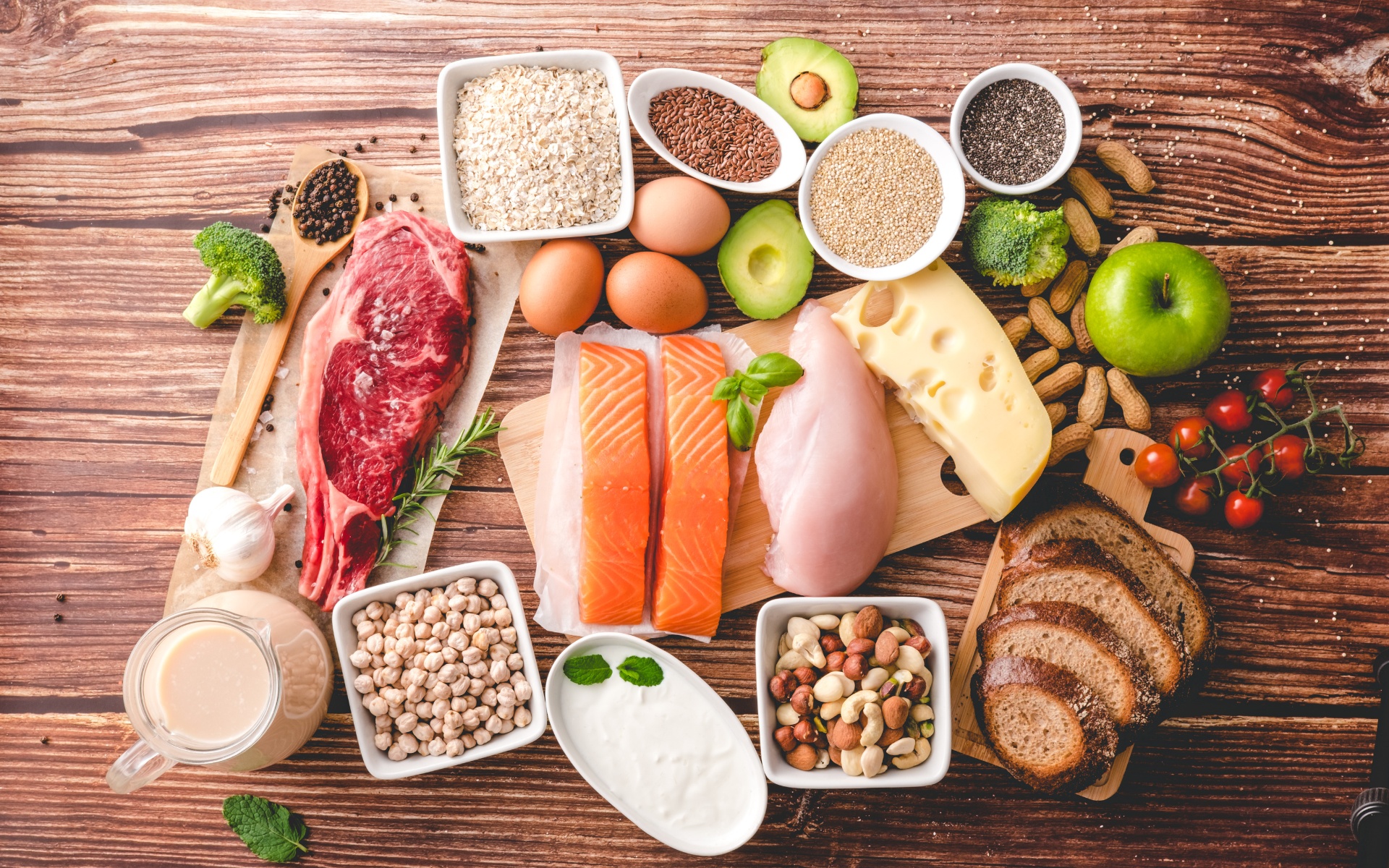
Imagine a diet that doesn't make you feel like you're missing out on all the good stuff. A diet where you can still enjoy a warm, fluffy bagel or a steaming plate of spaghetti without guilt. That's the beauty of carb cycling! Unlike those crazy restrictive diets, carb cycling isn't about saying goodbye to carbs forever. It's about working with your body's natural rhythms, not against them.
So, what exactly is carb cycling? In a nutshell, it's a clever approach to eating that involves alternating between days of higher carb intake and days of lower carb intake. Think of it like a dance – sometimes you waltz with a bowl of oatmeal, other times you tango with a protein-packed salad.
But why the back and forth? Well, it all comes down to how our bodies use energy. On those higher carb days, you're essentially filling up your energy stores, giving your body the fuel it needs to power through workouts and daily activities. Think of it like topping off your gas tank. On lower carb days, your body starts tapping into stored fat for energy, which is where the weight loss magic happens.[2] This is like switching your car to electric mode – you're still cruising, but using a different power source.
The best part? Carb cycling isn't a one-size-fits-all kind of deal. You can customize it to fit your lifestyle and preferences. Some people prefer to cycle daily, while others opt for weekly cycles. It's all about finding what works best for your body and your schedule.
Still not convinced? Here are a few more reasons why carb cycling might be your new BFF:
- No deprivation: You don't have to say goodbye to your favorite carb-filled foods forever. It's all about balance and moderation.
- Sustainable: Carb cycling is easier to stick to in the long run because it's flexible and doesn't leave you feeling deprived.
- Metabolism boost: The alternating carb intake can help keep your metabolism fired up, preventing those dreaded plateaus.[3]
- More energy: Fueling your body with carbs on workout days can lead to better performance and faster recovery.
So, if you're ready to ditch the diet roller coaster and embrace a more balanced, sustainable approach to eating, carb cycling might be just what you need. It's time to make peace with carbs and finally achieve those weight loss goals without sacrificing your sanity (or your taste buds!)
Carb Cycling 101: Your Step-by-Step Guide

Now that you're intrigued by the idea of carb cycling, let's dive into the nitty-gritty of how to make it work for you.
Choosing Your Carb Cycle:
There are a few different ways to approach carb cycling, and the best one for you will depend on your lifestyle, goals, and preferences. Here are a few popular options:
- The Standard Cycle: This involves alternating between high-carb and low-carb days throughout the week. For example, you might have three high-carb days, three low-carb days, and one moderate-carb day.
- The Cyclical Ketogenic Diet (CKD): This is a more advanced approach that involves a period of very low carb intake (ketogenic diet) followed by a period of higher carb intake (carb refeed). This is often used by athletes and bodybuilders.
- Targeted Carb Cycling: This involves timing your carb intake around your workouts. You'll have higher carbs on days you exercise and lower carbs on rest days.
Calculating Your Carb Intake:
The amount of carbs you eat on high-carb and low-carb days will depend on various factors, including your weight, activity level, and goals. A general guideline is to consume:
- High-carb days: 150-250 grams of carbs per day
- Low-carb days: 50-100 grams of carbs per day
Remember, these are just starting points. It's essential to listen to your body and adjust your carb intake based on how you feel and your progress. You can also track your macros (carbohydrates, protein, and fat) using a food diary or app to ensure you're staying within your desired range.
Planning Your Meals:
Once you've decided on your carb cycle and calculated your carb intake, it's time to start planning your meals. Here are some tips for creating delicious and satisfying meals on both high-carb and low-carb days:
- High-carb days: Focus on complex carbs like whole grains, starchy vegetables, legumes, and fruits. Include lean protein sources like chicken, fish, or tofu, and healthy fats like avocado or olive oil.
- Low-carb days: Prioritize protein and healthy fats, such as meat, fish, eggs, nuts, seeds, and low-carb vegetables like leafy greens, broccoli, and cauliflower.
Here's a sample meal plan to get you started:
High-Carb Day:
- Breakfast: Oatmeal with berries and nuts
- Lunch: Lentil soup with whole-wheat bread
- Dinner: Chicken stir-fry with brown rice
- Snacks: Fruit, yogurt with granola
Low-Carb Day:
- Breakfast: Eggs with avocado and bacon
- Lunch: Grilled chicken salad with mixed greens and avocado
- Dinner: Salmon with roasted asparagus and cauliflower rice
- Snacks: Vegetables with hummus, nuts and seeds
Remember, this is just a sample plan. Feel free to get creative and customize your meals based on your preferences and dietary needs. The key is to focus on whole, unprocessed foods and to adjust your carb intake based on your carb cycling schedule.
Tracking Your Progress:
As with any diet or lifestyle change, it's important to track your progress. This can help you stay motivated, identify what's working and what's not, and make adjustments as needed. Here are a few things to track:
- Weight: Weigh yourself regularly, but don't get too hung up on the numbers. Remember, weight can fluctuate due to various factors, including water retention and muscle gain.
- Measurements: Take measurements of your waist, hips, and other areas you want to track. This can give you a better idea of how your body composition is changing.
- Energy levels: Pay attention to how you feel on high-carb and low-carb days. Do you have more energy on one type of day than the other? This can help you fine-tune your carb intake.
- Mood: How does carb cycling affect your mood? Some people find that they feel more focused and energetic on low-carb days, while others feel more balanced on high-carb days.
By tracking your progress, you can make carb cycling work for you and achieve your health and fitness goals.
Troubleshooting and Tips:
If you're new to carb cycling, you might encounter a few bumps along the way. Here are some common challenges and tips for overcoming them:
- Hunger: If you're feeling hungry on low-carb days, try increasing your protein and fat intake. This can help you feel full and satisfied.
- Cravings: If you're craving carbs on low-carb days, try distracting yourself with an activity you enjoy or have a low-carb snack like vegetables and hummus.
- Plateaus: If you hit a weight loss plateau, try adjusting your carb intake or incorporating more exercise into your routine.
- Energy dips: If you experience energy dips on low-carb days, try having a small amount of carbs before or after your workout.
Remember, carb cycling is a journey, not a race. Be patient, listen to your body, and don't be afraid to experiment to find what works best for you. With the right approach and a little persistence, you can achieve your health and fitness goals while still enjoying the deliciousness of carbs.
The Science-y Stuff: How Carb Cycling Works Its Magic
Alright, let's get a little nerdy for a minute, shall we? Carb cycling isn't just some trendy diet fad; there's some fascinating science behind it that explains why it can be so effective for weight loss and overall health.
Fueling Your Body's Engine: You see, your body's preferred fuel source is glucose, which comes from carbohydrates. When you eat carbs, your blood sugar rises, and your body releases insulin. Insulin acts like a shuttle bus, carrying glucose to your cells for energy or storing it as glycogen in your muscles and liver for later use.
- High-carb days: Think of these days as filling up your glycogen stores, similar to how you fill up your gas tank before a road trip. This stored energy is essential for fueling those intense workouts and keeping you energized throughout the day.
- Low-carb days: When your glycogen stores are running low, your body starts looking for alternative fuel sources. That's when it turns to stored fat for energy, which is exactly what we want for weight loss! This is like your car switching to electric mode – you're still moving, but using a different power source.
Hormonal Harmony: But wait, there's more! Carb cycling isn't just about energy; it also plays a clever trick on your hormones.
- Glucagon: On low-carb days, your body increases the production of glucagon, a hormone that signals your body to release stored fat for energy.
- Growth Hormone: Carb cycling may also lead to a slight increase in growth hormone, which further promotes fat burning and helps preserve muscle mass.[4]
The Carb Cycling Advantage: This hormonal dance, combined with the strategic timing of carb intake, creates a powerful one-two punch for weight loss. By cycling between high-carb and low-carb days, you're essentially telling your body to burn fat for fuel while still providing it with enough energy to function optimally. This can lead to:
- Increased fat burning: Your body becomes more efficient at using stored fat for energy, helping you shed those extra pounds.
- Improved metabolic flexibility: Your body learns to switch between burning carbs and fat, which can help prevent metabolic slowdown and make it easier to maintain a healthy weight in the long run.
- Reduced cravings: By allowing for occasional carb indulgence, carb cycling can help prevent feelings of deprivation and make it easier to stick to your diet plan.
So, there you have it! The science behind carb cycling is pretty cool, right? It's not just about restricting carbs; it's about working with your body's natural processes to achieve your weight loss and health goals.
Carb Cycling Commandments: 6 Golden Rules

Alright, carb enthusiasts, let's talk about the ground rules. Carb cycling might sound like a free pass to indulge in all the pasta and bread your heart desires, but like any good thing in life, there are a few guidelines to follow. These six commandments will help you navigate your carb cycling journey and make the most of this awesome way of eating:
- Eat Frequently, Feast Strategically: Aim for 5 to 7 meals a day, spreading them out evenly to keep your metabolism humming and your energy levels stable. But remember, those meals on high-carb days will look different from those on low-carb days. High-carb meals should include plenty of complex carbs like whole grains, sweet potatoes, and fruits, while low-carb meals should focus on protein, healthy fats, and non-starchy vegetables. Think of it like this: on high-carb days, you're fueling your body for activity, and on low-carb days, you're encouraging it to burn stored fat.
- Ditch the Liquid Calories: Sugary drinks, even those seemingly innocent fruit juices, are a carb cycling no-no. Stick to water, unsweetened tea, or black coffee. Not only will this help you avoid unnecessary sugar and carb intake, but it'll also keep you hydrated, which is crucial for overall health and weight loss.
- Veggies Galore: Make vegetables your best friends on both high and low-carb days. They're packed with fiber, which keeps you feeling full and satisfied. Aim to include a generous serving of veggies with every meal. Think colorful salads, roasted vegetables, or stir-fried veggies with your protein.
- Plan Ahead: Failing to plan is planning to fail, especially when it comes to carb cycling. Meal prepping is your secret weapon. Having healthy meals and snacks ready to go will prevent those last-minute carb cravings and keep you on track. Spend a few hours on the weekend prepping your meals for the week ahead, and you'll thank yourself later.
- Pump Some Iron: On high-carb days, hit the gym for a strength training session. Your muscles are primed for growth with all those carbs on board, so take advantage of it! Strength training not only helps build muscle but also boosts your metabolism, which can further aid in weight loss.
- Cardio or Chill: Low-carb days are perfect for cardio or rest. A brisk walk, a yoga session, or simply relaxing and recharging can help your body recover and maximize the benefits of carb cycling. Listen to your body and choose activities that feel good to you.
Remember, these are guidelines, not strict rules. The beauty of carb cycling is its flexibility. Listen to your body, experiment with different approaches, and find what works best for you. Carb cycling is a journey, not a destination, so enjoy the ride and embrace the deliciousness of this flexible diet!
Your Carb Cycling Grocery List: Stock Up on the Good Stuff
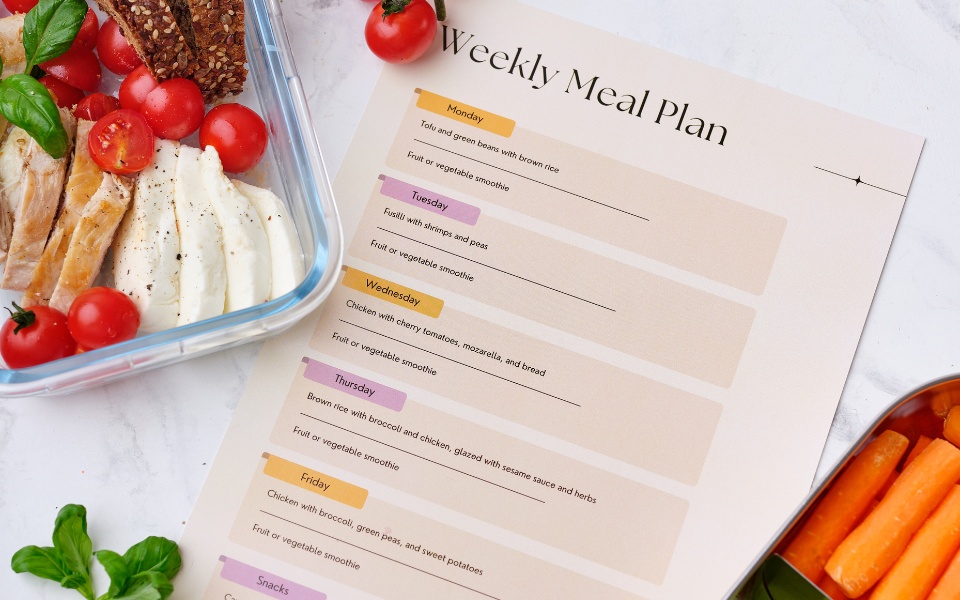
Get ready to rock the grocery aisles with your carb cycling shopping list! This isn't your average grocery haul – it's a carefully curated collection of nutrient-dense, flavor-packed foods that will keep your taste buds happy and your body fueled for both high-carb and low-carb days.
The Good Carbs (Complex Carbs for Sustained Energy):
- Whole Grains: Think brown rice, quinoa, oats, whole-wheat bread, and whole-wheat pasta. These complex carbs are packed with fiber, vitamins, and minerals, providing long-lasting energy and helping to regulate blood sugar levels. They're perfect for those high-carb days when you need to fuel your workouts or simply stay energized throughout the day.
- Starchy Vegetables: Load up on sweet potatoes, regular potatoes (with skin), butternut squash, and parsnips. These root vegetables are not only delicious but also offer a hefty dose of vitamins, minerals, and antioxidants. They're a great way to add some variety and excitement to your high-carb meals.
- Legumes: Lentils, chickpeas, black beans, and kidney beans are carb-cycling superstars. They're high in fiber, protein, and complex carbs, making them a satisfying and nutritious addition to your meals. Plus, they're incredibly versatile and can be used in salads, soups, stews, and more.
- Fruits: Berries, apples, pears, bananas, and citrus fruits are all fair game. They provide essential vitamins, minerals, and antioxidants, plus a touch of natural sweetness to satisfy your cravings. Enjoy them as a snack, add them to your yogurt or oatmeal, or blend them into a smoothie.
The Better Carbs (Lower in Carbs, Higher in Nutrients):
- Non-Starchy Vegetables: Broccoli, cauliflower, Brussels sprouts, spinach, kale, asparagus, and other leafy greens are low in carbs and high in vitamins, minerals, and fiber. They're perfect for bulking up your low-carb meals and keeping you feeling full and satisfied. Roast them, grill them, steam them, or sauté them – the possibilities are endless!
- Low-Sugar Fruits: Avocados, tomatoes, and berries like raspberries and strawberries are lower in sugar than some other fruits, making them a great option for carb cycling. They're still packed with nutrients and antioxidants, but they won't cause a huge spike in your blood sugar.
The Best Carbs (High-Carb Treats for Special Occasions):
- Tropical Fruits: Mangoes, pineapple, and papaya are higher in sugar than other fruits, so enjoy them in moderation on your high-carb days. They're a delicious way to satisfy your sweet tooth and add a touch of exotic flavor to your meals.
- Dried Fruits: Dates, raisins, and apricots are a concentrated source of carbs and natural sweetness. Enjoy them sparingly on high-carb days as a tasty treat or add them to your oatmeal or yogurt for extra flavor and sweetness.
Remember, this is just a starting point. Feel free to explore and experiment with different carb sources to find what you enjoy and what works best for your body. Happy carb cycling!
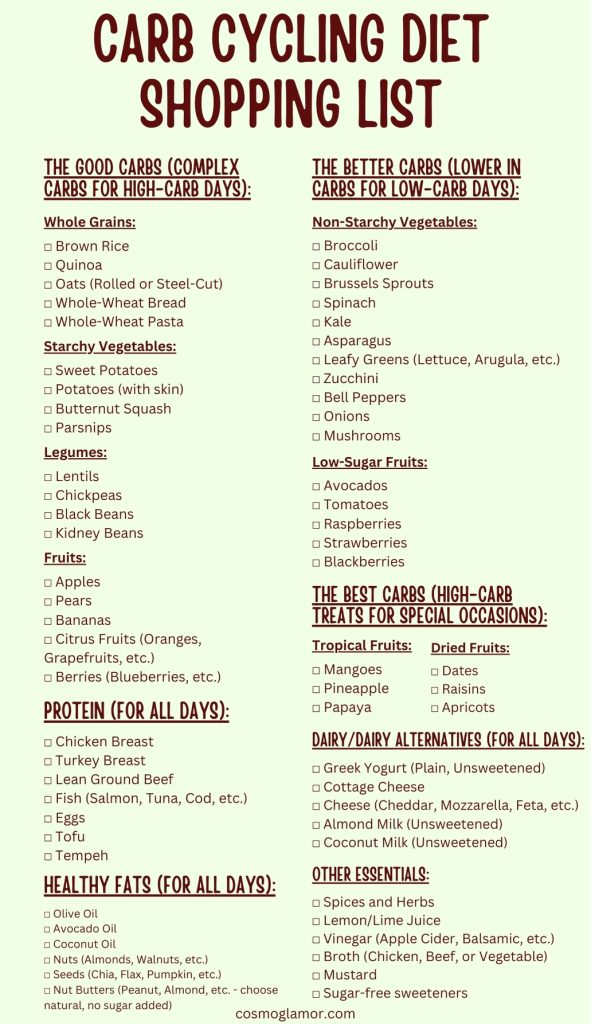
Foods to Avoid: The Carb Cycling Party Crashers

Alright, party people, it's time for a reality check. While carb cycling gives you a lot of freedom to enjoy delicious foods, there are a few sneaky culprits that can sabotage your progress and leave you feeling blah. Consider these the party crashers of the carb cycling world – especially on those low-carb days.
Refined Grains and Sugars:
Say “buh-bye” to white bread, white rice, pastries, cookies, cakes, sugary cereals, and anything else made with refined flour and added sugars. These simple carbs are like empty calories – they offer little nutritional value and cause your blood sugar to spike and crash, leaving you feeling hangry and craving more.
Processed Foods:
Chips, crackers, candy, soda, and other processed junk food are a big no-no. These are often loaded with unhealthy fats, artificial ingredients, and hidden sugars, wreaking havoc on your blood sugar and derailing your carb cycling efforts. Seriously, these guys are not invited to the party.
Fried Foods:
French fries, fried chicken, onion rings – these deep-fried delights might be tempting, but they're packed with unhealthy fats and calories. Steer clear of them, especially on low-carb days, to keep your fat-burning engine running smoothly. Think of it as giving your body a break from all that greasy goodness.
High-Sugar Drinks:
Fruit juices, sports drinks, energy drinks, and sugary sodas are all off the menu. They're basically sugar bombs in disguise, contributing to weight gain and blood sugar imbalances. Stick to water, unsweetened tea, or black coffee to keep your body hydrated and your carb intake in check.
Artificial Sweeteners:
While they might seem like a healthier alternative to sugar, artificial sweeteners can actually trigger cravings and mess with your metabolism. It's best to avoid them altogether and opt for natural sweeteners like stevia or monk fruit in moderation on your high-carb days.
Remember, this isn't a life sentence of carb deprivation! On your high-carb days, you can indulge in moderate amounts of some of these treats. But on low-carb days, it's crucial to stay vigilant and avoid these party crashers to maximize the fat-burning benefits of carb cycling.
Think of it like this: you wouldn't invite someone who always ruins the fun to your party, right? The same goes for your body. Treat it with respect by fueling it with whole, unprocessed foods, and it'll reward you with better health, more energy, and those weight loss results you're after.
21 Days of Carb Cycling Deliciousness: Breakfast, Lunch, Dinner, and Snacks
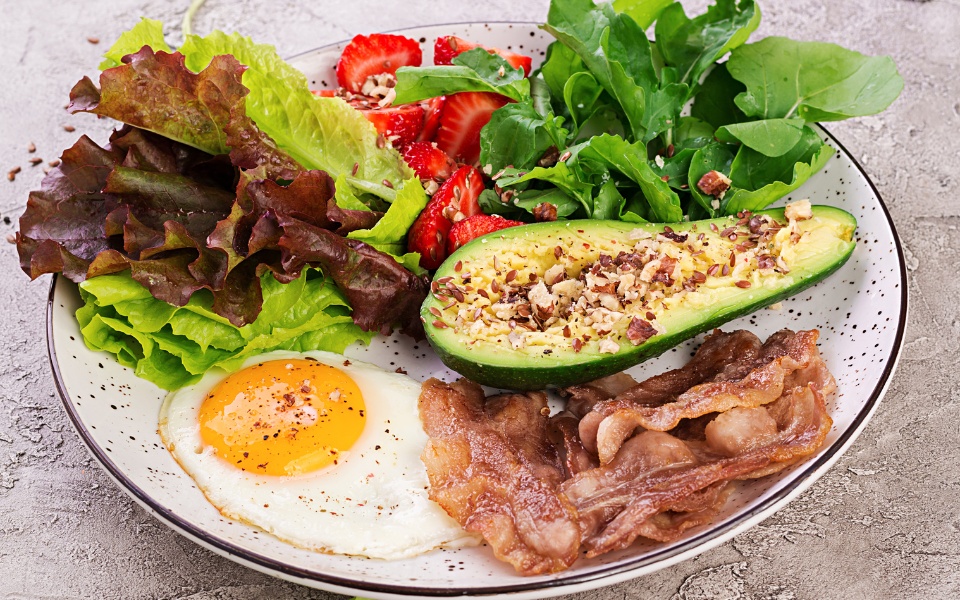
Ready to create a flexible, 21-day carb cycling meal plan without sacrificing flavor-or your favorite carbs? Here's how:
1. Choose Your Cycle
- High-Carb Days: Aim for 150-250g of carbs. Perfect for your workout days to power through heavy lifts or high-intensity sessions.
- Low-Carb Days: Stick to 50-100g of carbs to encourage fat burning and keep things lean.
- Moderate Days (Optional): Fall somewhere in between, depending on how your body feels and your fitness goals.
2. Mix & Match Meals
Each recipe below comes with approximate carbs and calories, so you can easily slot them into the right day. Most options lean lower in carbs, which is great for low-carb days.
- Need More Carbs? Add a side of brown rice, quinoa, sweet potatoes, or fruit to hit your high-carb targets.
- Prefer Fewer Carbs? Enjoy the recipe as is, or swap starchy sides for extra veggies.
3. Plan Ahead
Spend a little time each week prepping ingredients or batch-cooking proteins. You'll stay on track and avoid last-minute temptations (like dialing up takeout when hunger strikes).
4. Track & Adjust
Listen to your body:
- If you feel sluggish on a workout day, add more carbs.
- If weight loss stalls, taper back on carbs. Remember, carb cycling is flexible-tweak it to find what keeps you energized, satisfied, and moving closer to your goals.
Now, let's kick things off with some delicious breakfast inspiration:
21 Carb Cycling Diet Breakfast Recipes
1-Avocado Egg Boats: Simple yet filling, baked eggs in avocado halves are a healthy and tasty option. Top with everything bagel seasoning or a sprinkle of chili flakes for extra flavor. (5g Carbs, 220 Calories).
2-Keto Breakfast Casserole: This make-ahead casserole is perfect for meal prepping. Loaded with sausage, eggs, and cheese, it's a hearty low-carb breakfast that will keep you full for hours. (3.2g Carbs, 463 Calories).
3-Cloud Eggs: Light and fluffy, cloud eggs are made with whipped egg whites and yolks baked separately. They're a fun and low-carb alternative to traditional scrambled eggs. (1g Carbs, 129 Calories).
4-Smoked Salmon and Cream Cheese Omelet: Packed with protein and healthy fats, this omelet is a classic low-carb breakfast choice. The combination of smoked salmon and cream cheese is simply irresistible. (3g Carbs, 254 Calories).
5-Spinach and Feta Crustless Quiche: This quiche is low-carb and gluten-free, making it a great option for those with dietary restrictions. It's also packed with nutrients from spinach and feta cheese. (6g Carbs, 187 Calories).
6-Coconut Flour Pancakes: These pancakes are grain-free and low-carb, made with coconut flour and almond milk. Top them with berries and a drizzle of sugar-free syrup for a delicious breakfast treat. (24g Carbs, 343 Calories).
7-Chia Seed Pudding: This make-ahead breakfast is packed with fiber and protein. Chia seeds soaked in almond milk create a pudding-like texture that's both satisfying and delicious. (16g Carbs, 155 Calories).
8-Breakfast Sausage and Veggie Scramble: This protein-packed scramble is a great way to start your day. Combine your favorite breakfast sausage with colorful vegetables like bell peppers, onions, and spinach for a nutritious and flavorful meal. (5g Carbs, 220 Calories).
9-Keto Breakfast Smoothie: If you're short on time, a keto breakfast smoothie is a quick and easy option. Blend avocado, spinach, protein powder, and unsweetened almond milk for a filling and nutritious drink. (0g Carbs).
10-Low-Carb Breakfast Burrito: This burrito is made with a low-carb tortilla or lettuce wrap and filled with eggs, cheese, avocado, and your favorite breakfast meats and veggies. It's a delicious and portable breakfast option. (17g Carbs, 405 Calories).
11-Hard-Boiled Eggs and Avocado: This simple combo is a protein powerhouse. Slice or mash the avocado and season to taste. It's a quick and easy breakfast or snack. (10g Carbs, 339 Calories).
12-Bacon-Wrapped Asparagus Bundles: Wrap a few asparagus spears in bacon and bake until the bacon is crispy. It's a delicious and elegant low-carb option. (7g Carbs, 179 Calories).
13-Keto Egg Muffins: These customizable muffins are packed with protein and veggies. Mix eggs with cheese, cooked meat, and your favorite low-carb veggies, then bake in a muffin tin. (1.1g Carbs, 107.3 Calories).
14-Greek Yogurt with Berries and Nuts: Choose a plain, unsweetened Greek yogurt and top it with fresh or frozen berries and a handful of nuts or seeds for added texture and healthy fats. (35.5g Carbs, 250 Calories).
15-Keto Chaffles: Made with eggs and cheese, these waffles are a low-carb favorite. You can customize them with various toppings and spices. (3.2g Carbs, 149 Calories).
16-Tuna Salad Lettuce Wraps: Swap the bread for lettuce leaves and fill them with your favorite tuna salad recipe. It's a light and refreshing low-carb meal. (14g Carbs, 360 Calories).
17-Keto Pancakes: These pancakes are made with almond flour, eggs, and cream cheese. They are a delicious and low-carb alternative to traditional pancakes. (6g Carbs, 192 Calories).
18-Keto Coffee: Also known as Bulletproof coffee, this high-fat coffee is made with grass-fed butter and MCT oil. It's designed to keep you full and energized for hours.
19-Cottage Cheese with Cucumbers and Tomatoes: This simple combination is light, refreshing, and packed with protein. Add a drizzle of olive oil and some herbs for extra flavor.
20-Keto Smoothie: Blend unsweetened almond milk, spinach, avocado, protein powder, and a few ice cubes for a quick and easy low-carb breakfast on the go. (6.4g Carbs, 206 Calories).
21-Zucchini Bread: This moist and flavorful bread is surprisingly low in carbs. It's a great way to sneak in veggies and enjoy a sweet treat for breakfast. (6.9g Carbs, 196 Calories).
21 Carb Cycling Diet Lunch Recipes
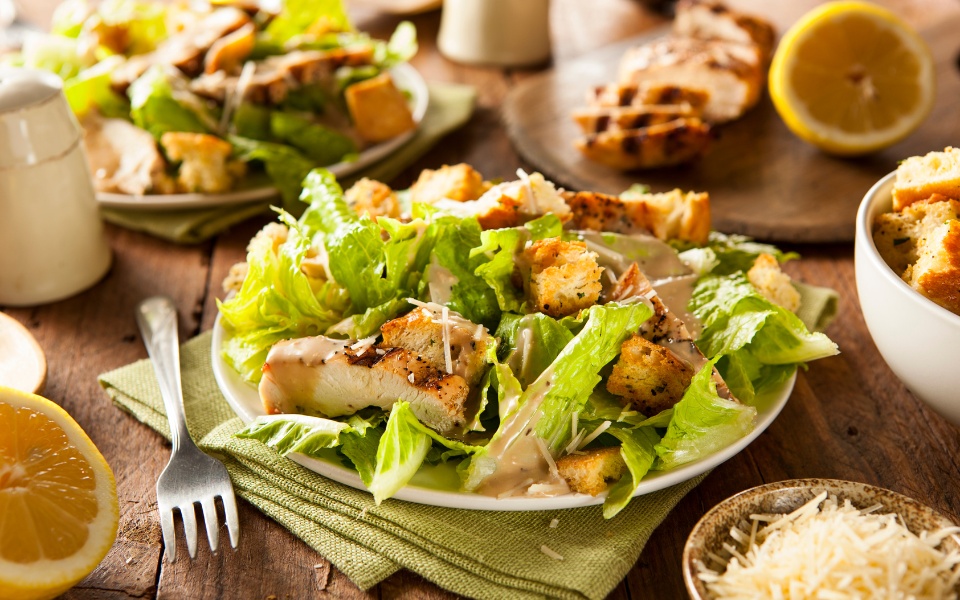
1- Bunless Burger Salad: Skip the bun and enjoy all the flavor of a juicy burger on a bed of greens. Top with your favorite burger fixings like cheese, bacon, avocado, and a sugar-free dressing. (9g Carbs, 670 Calories).
2- Chicken Caesar Salad: A classic for a reason! Use romaine lettuce, grilled chicken, parmesan cheese, and a homemade Caesar dressing made with olive oil, lemon juice, garlic, and anchovy paste (optional). (6g Carbs, 531 Calories).
3- Salmon Avocado Salad: Combine flaked salmon, diced avocado, cucumbers, red onion, and a light vinaigrette for a refreshing and protein-packed lunch. (10g Carbs, 383 Calories).
4- Zucchini Noodles with Pesto: Spiralize zucchini into noodles (or buy pre-made zoodles) and toss them with homemade or store-bought pesto. Add grilled chicken or shrimp for extra protein. (11g Carbs, 56 Calories).
5- Lettuce Wraps: Fill large lettuce leaves with your favorite protein (ground beef, chicken, or tofu), veggies, and a flavorful sauce. It's a light and customizable option. (4g Carbs, 197 Calories).
6- Tuna Salad Stuffed Avocado: Combine tuna with mayonnaise, celery, onion, and spices. Scoop out the center of an avocado and fill it with the tuna salad. (12.8g Carbs, 478.4 Calories).
7- Egg Salad: Make a classic egg salad with hard-boiled eggs, mayonnaise, mustard, and your preferred seasonings. Serve it on lettuce leaves, celery sticks, or cucumber slices. (2.4g Carbs, 362 Calories).
8- Antipasto Salad: Combine cured meats like salami and prosciutto with cheese, olives, marinated artichoke hearts, roasted red peppers, and a drizzle of olive oil and balsamic vinegar. (5g Carbs, 193 Calories).
9- Shrimp Salad: A light and refreshing salad made with cooked shrimp, mayonnaise, celery, onion, and lemon juice. Serve it on lettuce leaves, in avocado halves, or with cucumber slices. (4g Carbs, 134 Calories).
10- Steak Salad: Grill a lean steak to your liking and slice it thinly. Top a bed of mixed greens with the steak, blue cheese crumbles, cherry tomatoes, and a balsamic vinaigrette. (10g Carbs, 585 Calories).
11- Turkey Roll-Ups: Spread cream cheese, pesto, or mustard on deli turkey slices. Top with avocado, cheese, or your favorite vegetables, then roll them up for a protein-packed snack. (6g Carbs, 100 Calories).
12- Cauliflower Rice Bowls: Sauté cauliflower rice with your favorite vegetables and protein. Top it with a fried egg or avocado for a satisfying and nutritious meal. (67g Carbs, 453 Calories).
13- Caprese Salad: This simple Italian salad features fresh mozzarella, tomatoes, basil, and a drizzle of balsamic glaze. It's a light and flavorful low-carb lunch option. (8g Carbs, 261 Calories).
14- Taco Salad: Use lettuce leaves as your “taco shells” and fill them with seasoned ground beef or chicken, salsa, avocado, cheese, and sour cream. (9g Carbs, 530 Calories).
15- Eggplant Lasagna: Replace traditional lasagna noodles with sliced eggplant for a lower-carb version of this classic dish. Layer it with meat sauce, ricotta cheese, and mozzarella. (9g Carbs, 426 Calories).
16- Chicken Salad Stuffed Peppers: Halve bell peppers and fill them with a creamy chicken salad made with shredded chicken, mayonnaise, celery, onion, and spices. (9g Carbs, 164 Calories).
17- Spinach and Bacon Frittata: This baked egg dish is loaded with protein and flavor. Combine eggs, spinach, bacon, cheese, and your favorite herbs and spices, then bake until set. (5g Carbs, 269 Calories).
18- Cucumber and Avocado Gazpacho: This chilled soup is refreshing and light. Blend cucumber, avocado, yogurt, herbs, and spices for a creamy and satisfying low-carb lunch. (13g Carbs, 272 Calories).
19- Cobb Salad: This classic salad is loaded with protein and healthy fats. It typically includes hard-boiled eggs, bacon, avocado, grilled chicken or turkey, blue cheese, and a vinaigrette dressing. (9g Carbs, 480 Calories).
20- Greek Salad: This Mediterranean-inspired salad features fresh cucumbers, tomatoes, red onion, Kalamata olives, feta cheese, and a simple vinaigrette dressing. Add grilled chicken or shrimp for extra protein. (10g Carbs, 310 Calories).
21- Tuna Salad with Avocado: Combine tuna, avocado, mayonnaise, celery, onion, and lemon juice for a creamy and satisfying salad. Serve it on lettuce leaves or with cucumber slices. (5g Carbs, 345 Calories).
21 Carb Cycling Diet Snack Recipes
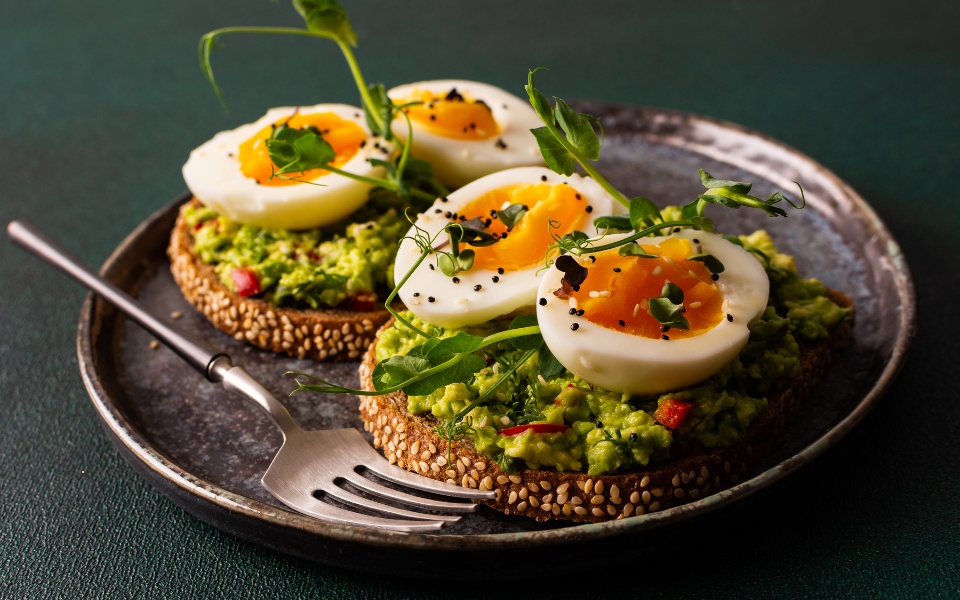
1-Hard-Boiled Eggs: A protein and healthy fat powerhouse, hard-boiled eggs are the ultimate portable and satisfying snack. (0g Carbs, 78 Calories).
2-Celery and Peanut Butter: Crunchy celery sticks paired with creamy, natural peanut butter (no sugar added!). This classic combo delivers healthy fats and a satisfying crunch. (0.9g Carbs, 36 Calories).
3-Cucumber Slices with Cream Cheese: A light and refreshing snack that's as simple as it is delicious. Add a sprinkle of dill or everything bagel seasoning for a flavor boost! (1g Carbs, 53 Calories).
4-Avocado Deviled Eggs: A keto twist on a classic! These deviled eggs get extra creaminess and healthy fats from avocado. (2g Carbs, 59 Calories).
5-Mixed Nuts and Seeds: A customizable trail mix with your favorite unsalted nuts and seeds. Almonds, walnuts, pumpkin seeds, and sunflower seeds are all excellent choices.
6-Pepperoni Pizza Cheese Drip Chips: Indulge your pizza cravings with these crispy, cheesy, and intensely flavorful chips. The ultimate low-carb, high-satisfaction snack. (2g Carbs, 129 Calories).
7-Tuna Salad Celery Boats: Crunchy celery sticks filled with flavorful tuna salad. Opt for plain yogurt or avocado mayo for a healthier twist.
8-Turkey Roll-Ups with Avocado: Simple, delicious, and protein-packed! Spread mashed avocado on deli turkey slices and roll 'em up. (16g Carbs, 256 Calories).
9- String Cheese: A convenient and perfectly portioned snack that provides a good dose of protein and calcium. (0g Carbs, 80 Calories).
10-Beef Jerky: Look for a brand with minimal added sugar for a protein-rich, low-carb snack that satisfies. (0g Carbs, 80 Calories).
11-Olives and Cheese: A savory and satisfying combination that's perfect for a quick bite. The healthy fats will keep you feeling full. (1g Carbs, 54 Calories).
12-Cucumber Bites with Smoked Salmon: Elegant and flavorful, these bites feature crisp cucumber topped with smoked salmon and a touch of cream cheese. (1.8g Carbs, 86 Calories).
13-Hard-Boiled Eggs with Guacamole: A delicious twist on classic snacks. Creamy guacamole paired with protein-packed hard-boiled eggs. (10g Carbs, 239 Calories).
14-Keto Fat Bombs: These little treats are designed to boost your fat intake. Find a variety of flavors online, often made with coconut oil, nut butter, and a low-carb sweetener. (23.14g Carbs, 923.12 Calories).
15-Pork Rinds: A surprisingly low-carb and high-protein crunchy snack. Enjoy the satisfying crunch without the guilt. (0g Carbs, 80 Calories).
16-Bell Pepper Slices with Guacamole: Crisp and colorful bell pepper slices paired with creamy, flavorful guacamole – a healthy and delicious snack. (12g Carbs, 123 Calories).
17-Sardines or Mackerel: Don't be afraid of these nutritional powerhouses! They're packed with omega-3 fatty acids and protein.
18-Kale Chips: A surprisingly tasty and healthy alternative to potato chips. These crispy baked kale chips are seasoned to perfection. (8g Carbs, 58 Calories).
19-Whipped Coconut Cream with Berries: A light and naturally sweet treat. Whip up the solid cream from a chilled can of full-fat coconut milk and top with fresh berries. (12g Carbs, 117 Calories).
20-Sugar-Free Gelatin: A low-calorie, low-carb, and refreshing snack.
21-MCT Oil Powder Shake: For a quick energy boost, mix MCT oil powder with water or unsweetened almond milk.
21 Carb Cycling Diet Dinner Recipes

1-Lemon Herb Baked Salmon with Roasted Vegetables: A classic dish that's both easy and flavorful. The salmon is marinated in a bright blend of lemon juice, herbs, and olive oil, then baked alongside a medley of colorful roasted vegetables like broccoli, cauliflower, and carrots. (14 g Carbs, 330 Calories).
2-One-Pan Greek Chicken and Veggies: This sheet pan meal is a weeknight lifesaver. Chicken thighs are seasoned with vibrant Greek spices and roasted with potatoes, zucchini, tomatoes, and a sprinkle of feta cheese for a complete, flavorful meal. (7.3g Carbs, 466.7 Calories).
3-Shrimp Scampi with Zucchini Noodles: Enjoy the classic flavors of shrimp scampi without the heavy pasta. Succulent shrimp are sautéed with garlic, butter, lemon juice, and white wine, then tossed with zucchini noodles for a light and satisfying low-carb meal. (5g Carbs, 251 Calories).
4-Chicken Fajita Bowls: These flavor-packed bowls are totally customizable. Sautéed chicken with fajita seasoning is served over a bed of lettuce and topped with your favorite fixings, like salsa, guacamole, cheese, and sour cream. (Not listed on the website, estimated: 20-30g Carbs, 575 Calories).
5-Beef and Broccoli Stir-Fry: A healthier take on a takeout favorite. This stir-fry features tender beef and crisp broccoli in a savory, soy-based sauce. Serve over cauliflower rice for a complete low-carb meal. (6g Carbs, 266 Calories).
6-Egg Roll in a Bowl: All the flavor of an egg roll without the wrapper! This quick and easy meal features ground pork or turkey cooked with cabbage, carrots, and Asian-inspired seasonings. A drizzle of Sriracha adds a spicy kick. (9g Carbs, 263 Calories).
7-Stuffed Bell Peppers: A colorful and satisfying meal. These bell peppers are filled with a hearty mixture of ground beef, cauliflower rice, tomatoes, and spices, then baked until tender. (22g Carbs, 454 Calories).
8-Cauliflower Pizza Crust: A low-carb and gluten-free alternative to traditional pizza crust. Top this surprisingly delicious crust with your favorite sauce, cheese, and toppings for a guilt-free pizza night. (14.3g Carbs, 224 Calories).
9-One-Pan Creamy Tuscan Chicken: A flavorful and easy dish that's perfect for a weeknight meal. Chicken is bathed in a creamy garlic sauce with sun-dried tomatoes and spinach, creating a rich and satisfying meal. ( Not listed on the website, estimated: 5-10g Carbs, 400-500 Calories).
10-Zucchini Lasagna: This lightened-up lasagna uses thinly sliced zucchini in place of noodles. Layered with meat sauce, ricotta, and mozzarella, it's a low-carb comfort food classic. (5g Carbs, 314 Calories).
11-Tuna Salad Lettuce Wraps: A refreshing and easy lunch or dinner option. Flaky tuna is mixed with mayonnaise, celery, onion, and seasonings, then spooned into crisp lettuce cups. (14g Carbs, 360 Calories).
12-Pork Chops with Sautéed Mushrooms and Spinach: Juicy, pan-seared pork chops paired with a flavorful side of sautéed mushrooms and spinach. A simple yet elegant low-carb meal. (6g Carbs, 469 Calories).
13-Steak Fajitas: Tender, marinated steak is grilled or pan-seared to perfection and served with colorful grilled onions and peppers. Enjoy with your favorite low-carb toppings. (30g Carbs, 355 Calories).
14-Cauliflower Fried Rice: This low-carb version of fried rice is just as flavorful and satisfying as the original. Riced cauliflower is stir-fried with eggs, veggies, and your choice of protein. (13g Carbs, 175 Calories).
15-Baked Chicken Thighs with Lemon and Herbs: Simple yet flavorful, these baked chicken thighs are marinated in lemon juice, olive oil, and fragrant herbs like thyme and rosemary. (1.8g Carbs, 286 Calories).
16-Garlic Butter Shrimp with Zucchini Noodles: Succulent shrimp sautéed in garlic butter and served over a bed of zucchini noodles. A light, flavorful, and low-carb delight. (Not listed on the website, estimated: 5-10g Carbs, 300-400 Calories).
17-Taco Stuffed Zucchini Boats: A fun and flavorful twist on tacos. Zucchini halves are filled with seasoned ground meat, taco spices, and cheese, then baked until tender. (23g Carbs, 360 Calories).
18-Chicken Parmesan with Spaghetti Squash: A lighter take on a classic Italian dish. Baked chicken breasts coated in Parmesan cheese are served over spaghetti squash with marinara sauce. (23g Carbs, 444 Calories).
19-Spinach and Feta Stuffed Chicken Breast: Elevate your chicken game with these flavorful stuffed breasts. A mixture of spinach, feta cheese, and herbs is tucked inside chicken breasts and baked or grilled to perfection. (Not listed on website, estimated: 5-10g Carbs, 319 Calories).
20-Keto Meatballs with Marinara Sauce: These savory meatballs are made with ground beef, almond flour, and Parmesan cheese. Simmered in a rich marinara sauce, they're perfect for a low-carb Italian feast. (10g Carbs, 457 Calories).
21-Turkey Meatloaf: A healthier version of a comfort food classic. Ground turkey is combined with almond flour, eggs, spices, and veggies for a flavorful and satisfying meal. (14g Carbs, 259 Calories).
21 Carb Cycling Diet Dessert Recipes
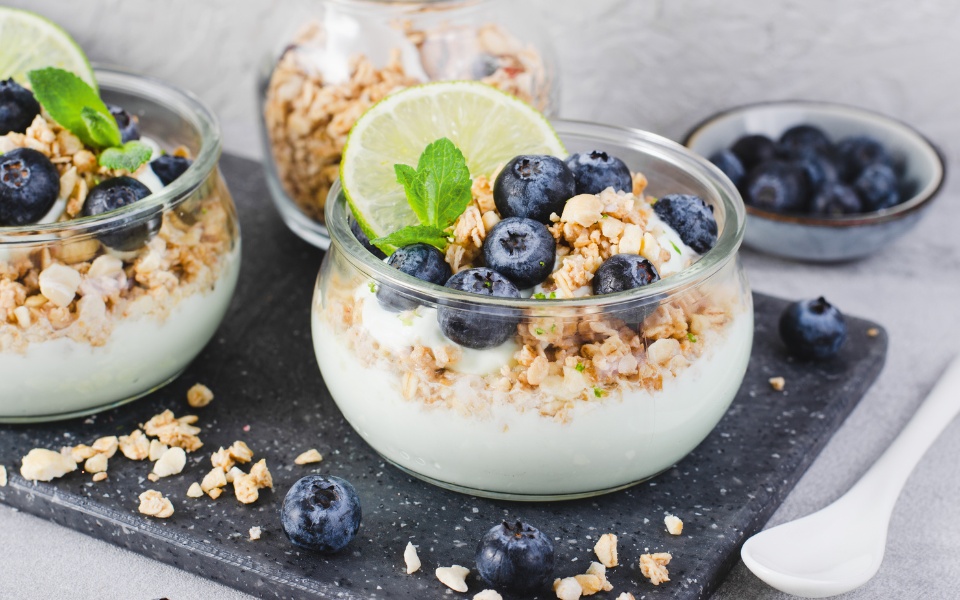
1-Keto Chocolate Mousse: Indulge in this rich and creamy mousse made with heavy cream, unsweetened cocoa powder, and a low-carb sweetener. It's incredibly decadent and surprisingly easy to make. (22g Carbs, 457 Calories).
2-Berry Parfait: A light and refreshing dessert that's perfect for warmer days. Layer Greek yogurt, fresh berries, and a sprinkle of chopped nuts for a simple yet satisfying treat. (38g Carbs, 313 Calories).
3-Keto Cheesecake Fat Bombs: These bite-sized treats are a great way to satisfy your sweet tooth while staying on track. Made with cream cheese, a low-carb sweetener, and your choice of flavors, they provide a boost of healthy fats. (1g Carbs, 108 Calories).
4- Avocado Chocolate Pudding: Don't knock it 'til you try it! Avocado adds a surprisingly creamy texture to this rich chocolate pudding. Sweetened with a low-carb sweetener, it's a healthy and delicious way to indulge. (73g Carbs, 559 Calories).
5-Coconut Flour Brownies: These fudgy brownies are a chocolate lover's dream. Made with coconut flour, almond butter, and a low-carb sweetener, they're gluten-free and surprisingly satisfying. (5g Carbs, 118 Calories).
6-Almond Flour Cookies: A healthier take on a classic cookie. Made with almond flour, butter, and a low-carb sweetener, you can add your favorite mix-ins like chocolate chips, nuts, or dried fruit. (6g Carbs, 82 Calories).
7-Chia Seed Pudding: A nutritious and delicious dessert with a pudding-like texture. Chia seeds are soaked in almond or coconut milk and flavored with your choice of low-carb sweetener and toppings. (35.1g Carbs, 297 Calories).
8-Keto Lemon Bars: Tangy, sweet, and satisfying! These keto lemon bars feature a buttery almond flour crust and a creamy lemon filling. (5g Carbs, 247 Calories).
9-No-Bake Peanut Butter Cups: A super simple, no-bake treat that combines the classic flavors of peanut butter and chocolate. Just mix peanut butter, coconut oil, and a low-carb sweetener, then freeze. (13g Carbs, 214 Calories).
10-Strawberry Shortcake: Enjoy a lighter version of this classic dessert. A low-carb biscuit made with almond flour is topped with fresh strawberries and whipped cream. (8.1g Carbs, 224 Calories).
11-Keto Pumpkin Pie: The perfect low-carb treat for fall. An almond flour crust holds a creamy, spiced pumpkin filling sweetened with a low-carb sweetener. (8g Carbs, 193 Calories).
12-Chocolate Avocado Ice Cream: You won't believe how delicious this dairy-free ice cream is! Avocado provides a creamy base, while cocoa powder and a low-carb sweetener create a rich chocolate flavor. (4.1g Carbs, 146.9 Calories).
13-Keto Berry Cobbler: A warm and comforting dessert featuring your choice of fresh or frozen berries topped with a buttery almond flour crumble. (12g Carbs, 224 Calories).
14-No-Bake Cheesecake: A quick and easy cheesecake with a nut-based crust and a creamy filling. Perfect for satisfying your cheesecake cravings without the long baking time. (8g Carbs, 380 Calories).
15-Chocolate Chip Cookie Dough Fat Bombs: Get your cookie dough fix without the carbs! These bite-sized treats are made with almond flour, cream cheese, sweetener, and sugar-free chocolate chips. (3g Carbs, 100 Calories).
16-Cinnamon Roll Chaffle: A fun and tasty low-carb treat! This “chaffle” (cheese waffle) is made with eggs and cheese, then topped with cinnamon and a sweet glaze. (2g Carbs).
17-Keto Coffee Cake Muffins: These moist and flavorful muffins are perfect for a grab-and-go breakfast or a satisfying dessert. They even have a delicious streusel topping! (7.6g Carbs, 285 Calories).
18-Keto Brownies with Cream Cheese Frosting: Fudgy, chocolatey brownies made with almond flour and cocoa powder, topped with a tangy-sweet cream cheese frosting. A low-carb dream! (24g Carbs, 224 Calories).
19-Keto Mug Cake: A single-serving cake that's ready in minutes! Made with almond flour and your choice of sweetener and flavorings, it's the perfect quick dessert fix. (4g Carbs).
20-Keto Ice Cream Sandwiches: A fun and refreshing treat! Use your favorite low-carb cookies or brownies to sandwich a scoop of keto-friendly ice cream. (12g Carbs, 644 Calories).
21-Keto Tiramisu: A low-carb twist on the classic Italian dessert. Layers of almond flour “ladyfingers”, a creamy mascarpone filling, and a dusting of cocoa powder create a truly decadent experience. (5.8g Carbs, 336 Calories).
Carb Cycling: It's Not Just About Weight Loss
Alright, my friends, let's get real for a sec. While shedding those extra pounds is definitely a major perk of carb cycling, this awesome way of eating has a whole lot more to offer than just a smaller waistline. Think of it as a total body upgrade – not just a diet, but a lifestyle that can seriously enhance your well-being and take your fitness journey to the next level.
Here's the scoop on how carb cycling can rock your world:
- Supercharge Your Athletic Performance: Ever felt like you hit a wall during your workouts? Carb cycling can help you break through those barriers. By strategically timing your carb intake, you can optimize your energy levels and fuel your muscles for those intense training sessions. High-carb days provide the fuel your muscles crave, while low-carb days encourage your body to tap into fat stores for sustained energy during endurance activities. You'll be crushing those PRs in no time!
- Become a Metabolic Master: Carb cycling can transform your body into a metabolic multitasker. By switching between burning carbs and fat for fuel, you enhance your metabolic flexibility, making it easier for your body to adapt to different energy demands. This can help prevent those frustrating weight loss plateaus and keep your metabolism humming along smoothly.
- Hormonal Harmony: Carb cycling can also work wonders for your hormones. It can help regulate insulin levels, which is key for maintaining stable blood sugar and preventing insulin resistance. Some studies even suggest that carb cycling may boost levels of leptin, the hormone that signals fullness, helping you feel more satisfied and curb those pesky cravings.
- Mood Boost and Mental Clarity: A balanced approach to carb intake, like carb cycling, can do wonders for your mood and mental clarity. While low-carb days might initially cause a slight dip in energy, many people report feeling more focused and mentally sharp once their bodies adapt. Say goodbye to those brain fog days!
- Happy Gut, Happy You: A carb cycling diet filled with whole foods, fiber, and a variety of nutrients can support a healthy gut microbiome. This can lead to improved digestion, better nutrient absorption, and a stronger immune system. So, not only will you look great on the outside, but you'll also be feeling fantastic on the inside.
- Sayonara to Cravings: By allowing for occasional carb indulgence, carb cycling helps reduce cravings and prevents those feelings of deprivation that often lead to diet derailment. This makes the diet more sustainable and enjoyable in the long run, meaning you're more likely to stick with it and achieve lasting results.
So, there you have it! Carb cycling is more than just a weight-loss tool. It's a lifestyle that can supercharge your health, fitness, and overall well-being. It's time to ditch the restrictive diets and embrace a balanced, sustainable way of eating that nourishes your body and mind. Trust me, your taste buds, your metabolism, and your overall health will thank you!
Ready to Roll? Your Carb Cycling Adventure Starts Now! So, are you ready to ditch the diet drama and embrace a sustainable, enjoyable way to eat? Carb cycling could be your ticket to a healthier, happier you. And hey, it's not just about the number on the scale; it's about feeling energized, boosting your metabolism, and having a better relationship with food. Who knows, you might even discover a newfound love for cauliflower pizza crust.
Remember, this is your journey. Experiment, have fun, and find what works best for you. Let's make carb cycling a delicious adventure!





References
- Effects of diet cycling on weight loss, fat loss and resting energy expenditure in women ↩︎ Back to text
- Carb cycling and resistance exercise can help reduce body fat ↩︎ Back to text
- Low carb improves metabolic flexibility ↩︎ Back to text
- Positive effects on hormones like leptin ↩︎ Back to text
- Save for Later8.0K


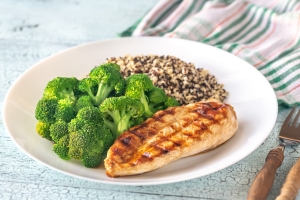


18 Responses
I just finished reading this article, and it’s fantastic! I’ve been looking for a simple way to start carb cycling, and these recipes look so delicious and easy to follow. Can’t wait to try them out and see how it goes. Thanks for sharing such a helpful guide! 🙌😊
Thank you so much for your kind words! 😊 I’m thrilled to hear that you found the article helpful and the recipes appealing. Best of luck with your carb cycling journey! If you have any questions or need further tips, feel free to reach out. Happy cooking! 🍽️🙌
I’ve heard a lot about carb cycling lately, but I’m a bit confused. How does it actually work to help you lose weight? Is it just about cutting calories in a fancy way?
Hi Brenda, thanks for your comment! You’re right to ask about the “how” of carb cycling. It’s definitely more than just calorie restriction. The magic lies in how it affects your hormones and metabolism. When you cycle between high and low-carb days, you’re essentially training your body to become more efficient at burning fat. On low-carb days, your body depletes its glycogen stores (stored carbs) and starts using fat for fuel. This can lead to increased fat burning and also helps stabilize blood sugar levels. As for the tiredness, some people do feel a bit sluggish initially on low-carb days, but this often improves as your body adapts. Plus, the high-carb days are there to refuel you and prevent that constant fatigue. It’s all about finding the right balance for your body! I felt the same, but I increased my protein and fat intake, so I felt full and satisfied.
I love the idea of not having to give up carbs completely, but I’m worried about the meal prep. It seems like a lot of work to cook different meals for high-carb and low-carb days. Any tips for making it easier?
Hi Jennifer, I totally get it – meal prep can be a challenge! But it’s a lifesaver when it comes to carb cycling. Here’s a tip: cook versatile components that can be used in both high and low-carb meals. For example, roast a big batch of chicken or vegetables at the beginning of the week. On high-carb days, pair them with brown rice or quinoa. On low-carb days, serve them over a salad or with cauliflower rice. Also, don’t be afraid to keep some meals simple, like a quick stir-fry or a salad with grilled protein. And remember, it’s okay to repeat meals a few times a week – that’s what I do to keep things easy! Also, using leftovers is your best friend in this.
This sounds interesting! I’m always up for trying new things, especially if it means I can still enjoy some carbs. But I do have a question about the carb cycling itself. It seems a little complicated – like, how much exactly should I be eating on high-carb days vs. low-carb days? Is there a specific formula to follow?
Also, the sample meal plan looks delicious, but I’m curious – can you share some ideas for vegetarian meals? I don’t eat meat.
Thanks!
Hi Ashley, thanks for your comment! Carb cycling can sound complex at first, but it doesn’t have to be. Regarding the carb intake, there’s no one-size-fits-all answer. It depends on several factors like your weight, activity level, and goals. A general guideline is:
High-carb days: 150-250 grams of carbs per day
Low-carb days: 50-100 grams of carbs per day
But remember, these are just starting points. It’s important to listen to your body and adjust your carb intake based on how you feel and your progress.
Absolutely! Here are some vegetarian options for your carb cycling journey:
High-Carb Day:
Breakfast: Oatmeal with berries and nuts, or whole-wheat toast with avocado and eggs
Lunch: Lentil soup with whole-wheat bread, or a veggie burger on a whole-wheat bun with sweet potato fries
Dinner: Vegetarian chili with brown rice and cornbread, or stir-fry with tofu, vegetables, and brown rice
Low-Carb Day:
Breakfast: Eggs with spinach and feta cheese, or chia pudding with almond milk and berries
Lunch: Veggie salad with avocado and chickpeas, or tofu scramble with a side of roasted vegetables
Dinner: Portobello mushroom burgers with lettuce buns and roasted cauliflower, or zucchini noodle primavera with a sprinkle of parmesan cheese
These are just a few ideas to get you started. There are endless possibilities for delicious and satisfying vegetarian meals on both high-carb and low-carb days.
I’m sold on carb cycling! But I’m a bit worried about staying on track, especially with all the temptations around. Do you have any tips for avoiding cravings and staying motivated throughout the process?
Hi Jessica, glad to hear you’re interested in carb cycling! Cravings are a common challenge, but there are ways to manage them. Here are some tips:
Plan your meals and snacks: This helps avoid unhealthy choices when hunger strikes.
Stay hydrated: Dehydration can sometimes be mistaken for hunger. Aim to drink plenty of water throughout the day.
Eat enough protein and healthy fats: These keep you feeling fuller for longer, reducing cravings.
Don’t completely restrict yourself: Allow for occasional indulgences in moderation.
Find healthy alternatives: If you crave something sweet, try a piece of fruit or a serving of dark chocolate.
Staying motivated is key! Here are some tips to keep you going:
Set realistic goals: Focus on small, achievable goals to celebrate your progress.
Track your results: Seeing your progress can be a great motivator.
Find a support system: Talk to friends, family, or a registered dietitian for encouragement.
Focus on the non-scale victories: Notice how you have more energy or your clothes fit better.
Reward yourself: Celebrate your milestones with non-food rewards.
Remember, carb cycling is a journey, not a destination. There will be ups and downs, but with a little planning and effort, you can achieve your goals and enjoy the deliciousness of food along the way!
Okay, I’m intrigued, but also a little skeptical. It sounds a bit too good to be true. Pasta and weight loss? Is this some kind of sorcery? Also, 250 grams of carbs on high-carb days seems like a LOT. I’m pretty sure I’d gain weight eating that many carbs in a day. And what about different racial groups? Do you have statistics showing how effective this is for, say, African American women like me? We tend to have different metabolic responses, you know. I’m willing to give it a try, but I need a little more convincing!
Ashley, I love your skepticism! It’s healthy to question things, especially when it comes to diets. You’re right, pasta and weight loss does sound like sorcery, but it’s all about the type of carbs and the timing. We’re talking complex carbs like whole grains, not a giant bowl of refined pasta every day. And yes, 250 grams might seem high, but it’s a starting point, and it’s for those active, high-carb days. You can definitely adjust it based on your body and activity level.
You bring up a really important point about different racial groups. You are absolutely right that metabolic responses can vary. Studies have indicated that African American women, in particular, may have a higher risk of insulin resistance and type 2 diabetes. While there isn’t a huge amount of research specifically on carb cycling and different racial groups, some studies suggest that African American women may benefit from a slightly lower carb intake overall compared to other groups, about 35% of calories from carbs in several studies. For example, a study published in the American Journal of Clinical Nutrition in 2005 (titled “Insulin resistance, the metabolic syndrome, and risk of incident cardiovascular disease in African American and white adults,” with 12,724 participants, 5,134 being African American) found that African American adults had a higher prevalence of insulin resistance and metabolic syndrome compared to white adults. Another study from 2006, in Diabetes Care (titled “Ethnic differences in the relationship between insulin sensitivity and insulin response,” with 585 participants, including African Americans, Hispanics, and non-Hispanic whites) showed ethnic differences in insulin sensitivity and response.
However, more research is needed. The most important factor for everyone, regardless of race, is the type of carbohydrates consumed. It’s about focusing on whole, unprocessed carbs. I’d recommend starting on the lower end of the carb range and monitoring your progress closely. It’s all about finding what works best for your individual body. Maybe start with 150-200 grams on high-carb days and adjust from there. And as always, it’s a good idea to consult with a doctor or registered dietitian, especially if you have any underlying health conditions.
This all sounds great, but I’m a busy mom with a full-time job and two kids. ‘Meal prepping for hours on the weekend’ is just not in my vocabulary. And those recipes? ‘Cloud eggs’? ‘Zucchini Lasagna’? I need meals that are quick, easy, and that my kids will actually eat. Plus, I’m not sure I understand the ‘ketogenic’ cycle. Is that really necessary? It sounds super restrictive. Is there a simpler way to do carb cycling without all the fancy recipes and complicated rules?
Jennifer, I hear you loud and clear! ‘Meal prepping for hours’ and ‘busy mom’ usually don’t go in the same sentence! And ‘cloud eggs’ might get you some funny looks from the kids (though they’re tastier than they sound!). The good news is, carb cycling can definitely be simplified. You don’t need to make every single recipe in the article. Think of those as inspiration. You can make simple swaps, like having a regular burger without the bun on low-carb days, or adding a side of sweet potato to your dinner on high-carb days. As for the ketogenic cycle, it’s definitely not required for everyone. It’s a more advanced approach. You can totally do a simple high-carb/low-carb cycle without going full keto. For busy moms, I’d recommend focusing on easy meals like stir-fries, sheet pan dinners (chicken and veggies roasted on one pan – minimal cleanup!), or even just grilling some chicken or fish and serving it with a side of pre-cut veggies. The key is to find shortcuts that work for you. Pre-cut veggies, rotisserie chicken, and even frozen meals (look for healthy options!) can be lifesavers. It’s all about making small, manageable changes that fit into your busy life. Don’t aim for perfection, aim for progress!
Do you just alternate every other day?
Hi Suzie! Great question! Yes, with the ‘standard cycle’ I described, you can alternate every other day – one day high-carb, the next low-carb, and repeat. That’s a very common and effective way to do it. However, I also mentioned that carb cycling is flexible! Some people prefer a pattern like 3 high-carb days followed by 3 low-carb days, or even a weekly cycle where they have 5 low-carb days and 2 high-carb days (often around their most intense workouts). The key is finding a rhythm that works best for your body and schedule. The 21-day plan gives lots of options, so feel free to experiment and see what you enjoy most!
This article has been very helpful. My husband and I want to give this a try. I understand what we should aim for with the amount of carbs. Should we also have a range for fats? Such as, lower fats for high carb days and higher fat for low carb days.
Amber, that’s a fantastic question! You’re spot on – think of it like a seesaw. High-carb days? Lower the fat a bit. Low-carb days? Up the healthy fats! Aim for lower fat (roughly 45-75g for a 150lb person) on your high-carb days, and higher fat (about 90-150g for a 150lb person) on low-carb days, always getting plenty of protein (105-150g for a 150lb person). Think avocados, nuts, olive oil – yum! Honestly, the best approach is to listen to your body and tweak things. You and your husband might find slightly different amounts work best. Keep me posted on how it goes, and feel free to share any recipe wins! Excited for you both!